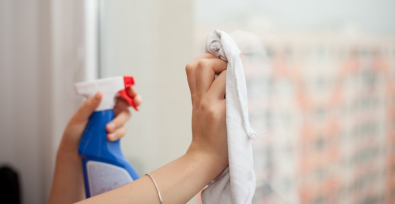Never having visited another country, Priyanka Danaratna enthusiastically accepted an offer to move from Sri Lanka to Australia to work as a domestic worker for a diplomat. However, Priyanka’s excitement was short lived as upon arrival, she was asked to hand over her passport. Priyanka worked 7 days a week, up to 14 hours per day, for only 65 cents an hour. As reported by the Guardian, David Hillard who represented Danaratna before the federal court said, “How do we describe this as anything other than slavery?”
Diplomat and Sri Lankan Government refuse to pay
For three years, Priyanka worked in the home of Himalee Subhashini de Silya Arunatilaka, the then-deputy high commissioner of Sri Lanka. In 2015, Australia’s minimum wage was $17.29 per hour, yet Danaratna was paid a meager 65 cents an hour for her work between 2015 and 2018.
Priyanka was not given unpaid time off and only took two days off due to being hospitalized for burns sustained while cooking. She stated in court that her employer was not impolite and never threatened her, but did not provide her with satisfactory clothing and food.
Priyanka added:
“I did not feel like I was being treated properly.”
In August, Justice Elizabeth Raper found the diplomat guilty of breaching the Fair Work Act and ordered Arunatilaka to pay Danaratna $374,000 in unpaid wages plus $169,000 in interest. Arunatilaka and the Sri Lankan government have refused to accept the court’s verdict, claiming the salary was mutually agreed upon. However, The Guardian reveals that the employment documents both parties signed clearly state Danaratna would be paid in accordance with Australian laws.
As of now, Priyanka has still not been paid the money she is owed.
Danaratna’s case not an isolated incident
Not surprisingly, lawyers and campaigners say harsh working conditions are not uncommon in diplomatic households.
In 2015, Seema Shergill was brought to Australia to do domestic work for the then Indian high commissioner, Navdeep Suri Singh. Shergill experienced similar work conditions as Priyanka, including the confiscation of her passport. In addition, she was never given a day off, not allowed outside the house, and paid about $9 per day, which was also less than the minimum wage at the time. However, she also worked 17-hour days and experienced threats from Singh’s wife.
Shergill said in court:
“Sometimes she would get angry with me and say things such as ‘I will send you back, where you won’t earn much money’.” … “I did not feel that I could escape my situation. I believed that I would be in danger if I tried to leave. I believed that Mr Suri was the most powerful person from India in Australia.”
The Australian federal court and Justice Raper have since ordered Singh to pay $189,000 in unpaid wages and interest to Shergill, and a $97,200 fine. However, Singh and the Indian government refused to take part in the court case or pay the ordered amount. The diplomat justified his actions to the Guardian Australia by stating that her wages were governed by the Indian wage norms because of Shergill’s diplomatic status.
Arindam Bagchi, A spokesperson for India’s Ministry of External affairs claims the Australian court has no jurisdiction to hear cases for India-based staff of the high commission. With the help of the Salvation Army, Shergill is now an Australian citizen. Bagchi also believes this was the true motive of her accusations.
“insufficient scrutiny”
Private domestic staff generally enter Australia on a 403 diplomatic visa for domestic workers. Yet Shergill entered on a 995 diplomatic staff visa which domestic workers are not eligible for. The Guardian reports that several countries are routinely presenting domestic staff hired to work in private homes of senior officials as diplomats.
Justice Raper noted in Priyanka’s case that Australian authorities granting her visa should have clearly recognized that she would not be lawfully employed. She added that there was “insufficient scrutiny” of her proposed working arrangement.
Raper continued:
“It is perplexing that the department, in the circumstances, did nothing and granted the visa.”
Australia must protect vulnerable workers
Australian law requires diplomats employing domestic workers to provide contracts compliant with workplace standards, but evidence consistently shows breaches of these requirements. In Shergill’s case, officials presented her with an employment contract after she had already worked for a year. When Shergill refused to sign because the documents misrepresented her pay, Singh’s wife threatened to send her back to India. She fled four days later.
The ongoing exploitation of domestic workers under diplomatic visas in Australia exposes a deeply troubling lack of due diligence. Priyanka’s harrowing account highlights systemic failures, as weak visa protections leave migrant workers vulnerable to exploitation, with many too fearful to report abuse due to threats and dependency on their employers. Take action to demand for safe migration policies to protect workers from exploitation.







Freedom United is interested in hearing from our community and welcomes relevant, informed comments, advice, and insights that advance the conversation around our campaigns and advocacy. We value inclusivity and respect within our community. To be approved, your comments should be civil.